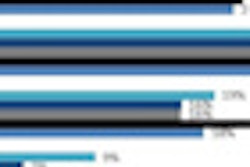The U.S. Centers for Medicare and Medicaid Services (CMS) Fraud Prevent System (FPS) saved an estimated $115.4 million in projected savings, according to a September 2012 report to Congress of its first implantation year performance that has now been made publicly available.
CMS started the program using predictive analytic technology on June 30, 2011. This was the first time that CMS systematically applied advanced analytics against Medicare fee-for-service claims on a streaming, nationwide basis. During its first year of operation, the FPS generated leads for 536 new fraud investigations and provided new information for 511 pre-existing investigations.
For every dollar spent on the FPS, CMS estimated that $3 were saved. Therefore, it reported that of the estimated $115.4 million saved from potential payments of fraudulent reimbursement requests, $31.8 million represented actual savings. An estimated $83.6 million represented projected savings of funds that would have been paid if the FPS had not flagged the claim, identified the fraud, and took steps to prevent future similar fraudulent claims from being potentially submitted.
During its second year, the FPS is expected to have the ability to automatically stop payment of certain improper claims, such as those that are medically unbelievable, by communicating a denial to the claims payment system, according to the report. Unlike the agency's current claim edit modules, the FPS can evaluate claims for episodes of care that span multiple legacy claims processing systems, as well as those that span multiple visits over a period of time.
Additionally, the number of fraud identification modules used by the FPS will nearly double. Model enhancements will rely upon expert analyses of fraud data acquired in the first year to identify new patterns of fraud. These enhanced capabilities are expected to more accurately target healthcare providers with aberrant billing patterns.
CMS also stated that it will be expanding its cooperation with the U.S. Office of the Inspector General (OIG) with respect to enhancing data integration. The agency plans to invite OIG to determine how to better leverage fraud programs.
The report is available here.



















